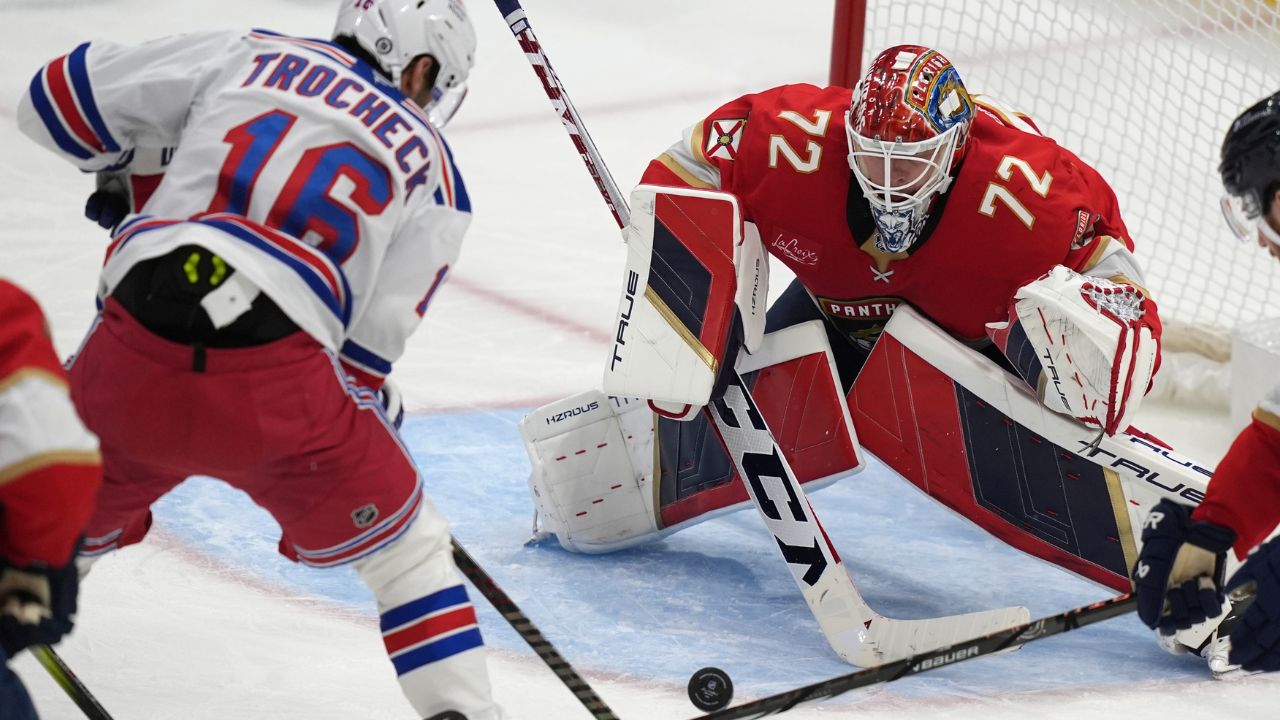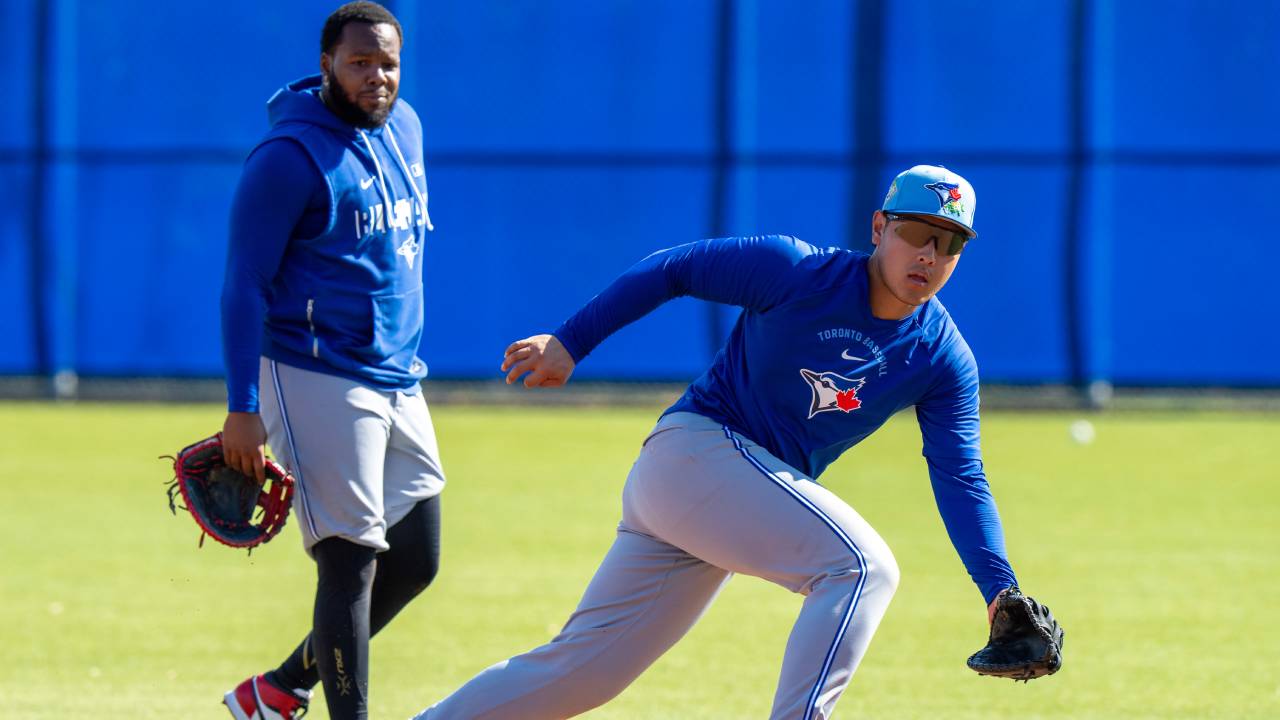
You build a strong, contending team by hitting on your early draft picks and having those become impact players. Some teams might spend big on an important player in free agency to help them get there, or make a big splash in the trade market to add a coveted performer to try and put you over the top.
What really starts to set a team apart is in finding value additions, whether at the draft table, through trade, or off the radar through free agency. In this edition of the Friday Four, we’ll highlight some players who were value adds when they were brought in and have had very positive impacts on their teams in these playoffs. For this purpose, we’ll try and focus on guys who haven’t had their playoff breakout before — it’s happening right now.
So, while someone like Jake Guentzel or Johnny Gaudreau were originally value additions when they first arrived, they are now long well-established players who have done it before in the regular or post-season more than once. We know what they’re all about.
This week we’ll look at…
• How the Florida Panthers swiped Carter Verhaeghe from the Lightning on the cheap
• Devon Toews‘ impact as a top-pair defender in Colorado
• Kirill Kaprizov and appreciating his first great playoff showing
• And Frank Vatrano, this year’s unforeseen, outsized playoff performer.
Carter Verhaeghe, Florida Panthers
If you knew where to look, you saw the potential Verhaeghe had when he was a free agent in 2020. He was coming off just a nine-goal, 13-point rookie season with the Tampa Bay Lightning (and a minus-9 rating) where he spent most of his time as a fourth-line player averaging under 10 minutes a game. You didn’t see much of him underneath that stacked roster (he added two assists in just eight playoff games during the Cup run), but his regular season underlying numbers were solid.
At 5-on-5, Verhaeghe was one of five Lightning players to average over one goal per 60 minutes of ice-time, joining Nikita Kucherov, Alex Killorn, Steven Stamkos and Brayden Point. That stat has been an indicator of possible breakout players in the past, if they just got more ice time, including Jakub Vrana (who has 21 goals in 37 games since getting traded to Detroit and being given a greater role) and Jordan Kyrou, who we explored near the start of this season before he did get more ice time and finished with 27 goals.
Even going back one year prior to that, Verhaeghe led the AHL in scoring with 34 goals and 82 points in 2018-19, two years after he spent a chunk of his season in the ECHL. He was clearly a rising asset.
The Panthers made a low-risk wager that he’d hit with them and signed Verhaeghe to a two-year deal with a $1 million AAV. He’s still on that contract now, has carved out a permanent place on the left side of Line 1 next to Aleksander Barkov, and has 42 goals in 121 regular season games with Florida.
Across two playoffs (and two rounds) with the Panthers, he’s up to seven goals in 11 games now and is a goal-per-game player so far in these playoffs. He scored the OT winner in this year’s Game 4 against the Capitals to pull the Panthers even, and in Game 5’s incredible comeback, Verhaeghe scored Florida’s first to get momentum turned in their direction and finished with a five-point night in the critical 5-3 win. He was credited with the game-winner in that one, too.
“That’s him,” Panthers coach Andrew Brunette said. “I think that’s why he’s so important for our team. He’s gonna be relentless in his work ethic and coming back for pucks and going at pucks. Just relentless. That’s how he plays.”
Verhaeghe is now two points off the playoff scoring lead, with one less game played than Connor McDavid or Brad Marchand ahead of him. If the Panthers outlast the Capitals, Verhaeghe will be on early Conn Smythe lists. He’ll begin a new contract with the Panthers next season, a three-year extension with a $4.166 million AAV. And that still may be a value deal.
The 26-year-old is questionable for Game 6 Friday night, and that will now be a situation to monitor.
Devon Toews, Colorado Avalanche
The stud of Round 1 for Colorado was Cale Makar, whose three goals and 10 points in four games is just utterly ridiculous for a defenceman. Makar himself is a special, unique defenceman who seems likely to have many award-worthy seasons in his future.
And if you’re not talking about Makar in Colorado, you’re probably mentioning Nathan MacKinnon or Gabriel Landeskog or Mikko Rantanen. Heck, you’re probably talking about Nazem Kadri who always seems to have an impact (both positive and negative in his past) come playoff time.
Just don’t forget about Devon Toews, who was probably playing his way on to Team Canada had NHLers gone to the Olympics this past winter.
On a pairing with Makar, Toews was one of the most leaned-upon defenders in Round 1, averaging 24:44 of ice time and was the only Av to average over 20 minutes a game in even strength minutes. He was productive, with three goals and five points in four games, and when Toews was on the ice, Colorado controlled over 62 per cent of the expected goals — which can be expected on a top unit that sweeps aside an inferior opponent.
But while he can add offence (and did provide a career-best 57 points in 66 games this season) Toews’ added value is on the defensive side of the puck, which isn’t the most noticeable side of the game.
Toews was a fourth-round pick of the Islanders in 2014 after his freshman year at Quinnipiac, and so he came from off the radar that far away. He gave them a couple of strong seasons too, scoring 28 points in his final regular season with New York and adding 10 more points in 22 playoff games. But he was fifth in average ice time among Islanders blueliners in that run to the third round. He was beginning to emerge from being under the radar, and then Lou Lamoriello dealt him to Colorado for a couple of second round picks.
Kirill Kaprizov, Minnesota Wild
This one is a little different because Kaprizov hasn’t changed NHL teams and feels like a player who had superstar potential forever. He must have been a first-round pick, right?
Try a fifth-rounder. Kaprizov was way down the order in his draft season, and then it was far from a guarantee he’d ever join the Wild at all. In the two years after his draft, Kaprizov took off in the KHL and the first window of hope that he’d come to North America opened in 2017, but then Kaprizov instead re-signed a three-year deal with CSKA Moscow that guaranteed a further delay to his NHL career.
Kaprizov, for his part, spoke in 2017 and said there wasn’t much communication coming his way from the then-Wild front office led by Chuck Fletcher. Kaprizov went on to become one of the KHL’s top goal scorers and shone at the 2018 Olympics. It was clear then he had superstar potential, but the Wild were a ways off, and there was no guarantee he’d ever join them.
Bill Guerin was the GM who was finally able to get him to sign with the Wild, and as soon as Kaprizov arrived he was a game-changer for the franchise. He had a goal and two assists in his first NHL game and finished with 27 goals in 55 games as a rookie last season, running away with the Calder Trophy. He scored twice in a seven-game Round 1 playoff loss to Vegas, and last year’s playoff showing was a tip-toe intro into it.
Kaprizov took another step this season, becoming Minnesota’s first 100-point player and he stepped up further in the playoffs as well. Though the Wild dropped their series to St. Louis in six games, Kaprizov was a beast scoring seven times, including a hat trick and two game-winners. Minnesota socred 16 goals as a team. He was the Wild’s most impactful player with his results and when he was on the ice at 5-on-5, they controlled over 56 per cent of the shot attempts and expected goals.
We knew coming into these playoffs that Kaprizov was a stud and so in that sense he didn’t surprise us at all. But it was a playoff breakout for him and a good sign for the future that he can excel at this time of year. The Wild will now face a few years of a self-induced cap crunch, which will make improving the roster very difficult. The mid-20s players signed with term through it, including Kaprizov and Joel Eriksson Ek (who was also excellent against the Blues), will be required to be stellar for the Wild to keep growing as a contender.

Frank Vatrano, New York Rangers
When the Panthers had to clear a bit of roster and salary space for their prioritized deadline moves, the Rangers became beneficiaries. Frank Vatrano was had cheap, with Florida getting just a fourth-rounder back. Now, you wouldn’t have expected a player like Vatrano to bring back much more in trade — he’s more of a bottom-sixer with the potential to finish around the 35-to-40-point range, but his fit on the Rangers has been something bigger than that. Vatrano had eight goals and 13 points in 22 regular season games with the Rangers after the mid-March trade, performing as one of the better pickups along the way.
In the playoffs, Vatrano is sixth among Rangers forwards in even-strength ice time and has carved out a spot for himself on the top line with Mika Zibanejad and Chris Kreider. He can really move all over this lineup.
When we identified the Rangers as one of the trade deadline “winners” it was because they added a few “playoff tough” players, guys who could add muscle, depth and flexibility to the lines. But also some offensive punch. Andrew Copp was another major piece of this and the former Winnipeg Jet has also been excellent with three goals in the five games played against Pittsburgh this round. Around Manitoba at least, Copp’s contributions have been appreciated for a few years.
Vatrano, an undrafted signing by the Bruins in 2015, is just now getting full attention as he peaks at 28 years old in a big market. Not only can he be a disturber, but he can create offence at any time. Vatrano is tied for sixth in the entire NHL with 18 shots on goal at 5-on-5 so far in these playoffs and has scored twice in that setting.








